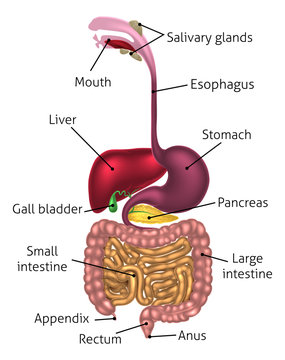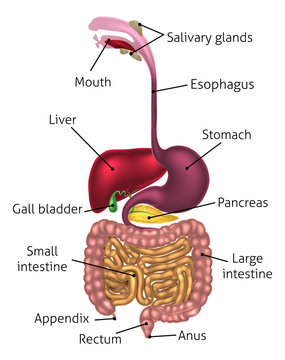The exact cause of IBD remains unclear.

Inflammatory Bowel Disease (IBD) is a chronic condition that affects millions of people worldwide. It comprises two main disorders: Crohn’s disease and ulcerative colitis.
The term “inflammatory bowel disease” (IBD) refers to conditions where the tissues in your digestive tract have experienced persistent inflammation.
Diarrhoea, rectal bleeding, abdominal pain, exhaustion, and weight loss are typical symptoms of both ulcerative colitis and Crohn’s disease.
Causes of IBD
IBD is believed to result from a combination of genetic, environmental, and immune factors. Certain genetic mutations make individuals more susceptible to the disease, and environmental triggers, such as diet and infections, can contribute to its development.
The immune system also plays a crucial role, as it mistakenly attacks the digestive tract, leading to chronic inflammation.
Symptoms of IBD
- Abdominal Pain: One of the hallmark symptoms of IBD is recurrent abdominal pain, often described as cramping and localized discomfort.
- Diarrhea: Chronic diarrhea, sometimes with blood or mucus, is a common symptom of IBD.
- Weight Loss: Loss of appetite and weight loss can occur due to malabsorption of nutrients.
- Fatigue: Ongoing inflammation and the body’s response to it can lead to persistent fatigue.
- Rectal Bleeding: In ulcerative colitis, bleeding from the rectum is a frequent symptom.
- Bowel Urgency: Sudden and frequent urges to have a bowel movement are common in both Crohn’s disease and ulcerative colitis.
Management of IBD
- Medications: Several medications are used to manage IBD, including anti-inflammatory drugs, immune system suppressors, and biologics that target specific proteins involved in inflammation.
- Diet and Nutrition: Dietary changes can help manage symptoms. Some individuals with IBD find relief by avoiding trigger foods and following a low-residue or low-FODMAP diet.
- Lifestyle Modifications: Stress management techniques, regular exercise, and getting enough sleep can help reduce the frequency and severity of flare-ups.
- Surgery: In severe cases or when medication is ineffective, surgery may be necessary to remove damaged portions of the digestive tract.
- Monitoring and Support: Regular check-ups with a gastroenterologist and joining support groups can provide emotional and practical support for individuals with IBD.
Prevention and Future Outlook
While IBD cannot be entirely prevented, early diagnosis and proper management can significantly improve the quality of life for those affected. Research into the causes and treatment of IBD continues, offering hope for more effective therapies in the future.
Conclusion:
Inflammatory Bowel Disease is a chronic condition that can significantly impact the lives of those affected. Understanding its causes, recognizing its symptoms, and seeking appropriate medical care are essential steps in managing this complex condition.
With ongoing research and advancements in treatment, individuals with IBD can look forward to better management options and an improved quality of life.
